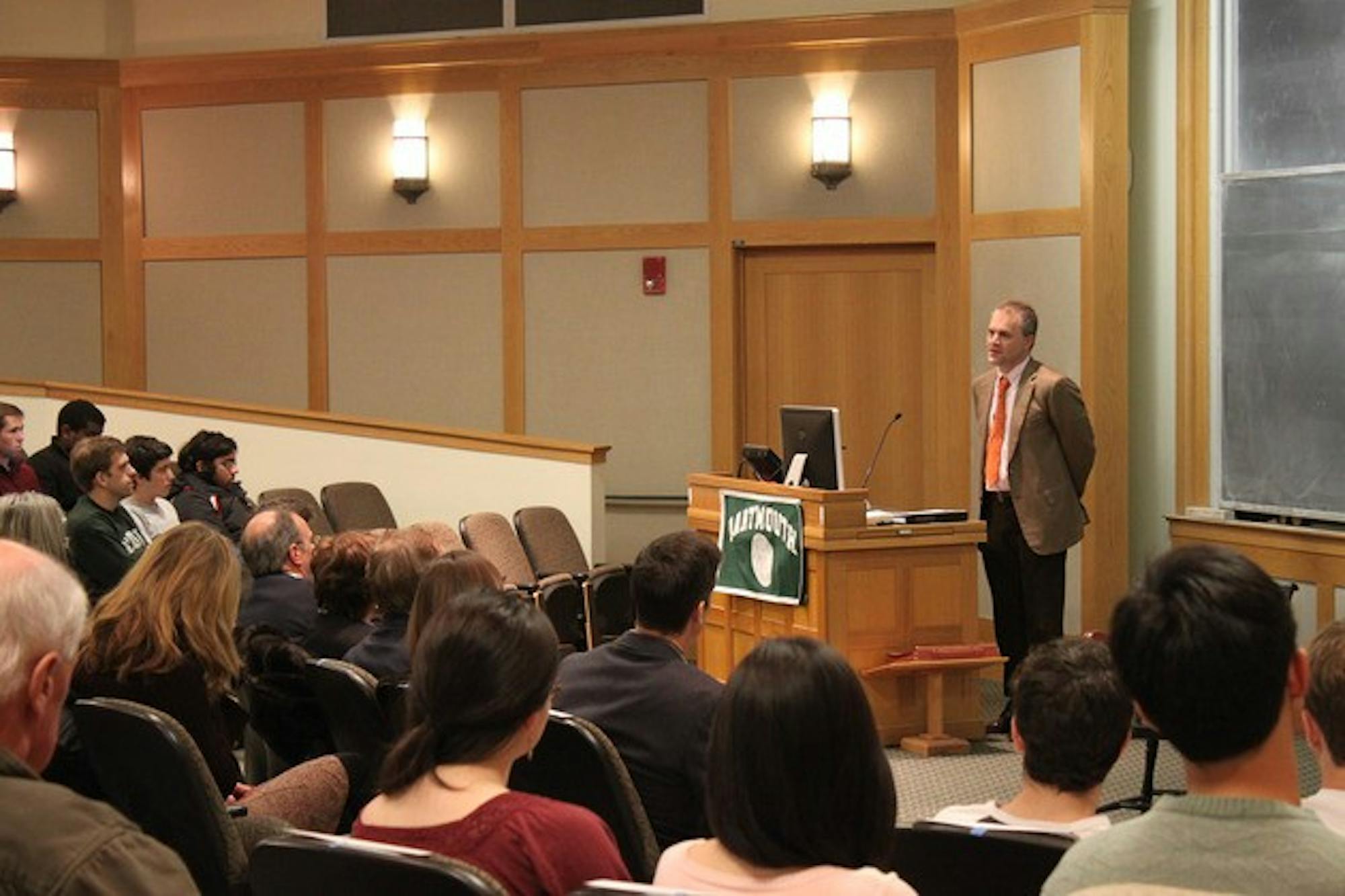Clements is the co-founder of Free Speech for People, a coalition of public interest groups devoted to limiting corporate influence in politics.
"We the people are no longer allowed to define what was criminal for 200 years as criminal anymore because of Citizens United," he said.
He described how elections used to be funded by public financing and cited 20 corporations that were criminally prosecuted for spending money on elections in 1972.
"Americans have always known that if politicians are elected or can run campaigns because of the funding of a very few, they will answer to those few," Clements said.
The amount of money spent by corporations and large donors was a "mere drop in the bucket" for those entities, Clements said.
Eighty percent of the $6 billion dollars spent in the 2012 general election campaign comes from the top 0.5 percent of the population, he said. The relationships that form through candidates' solicitation for money and corporations' donations are dangerous for American democracy, according to Clements.
"Citizens United isn't just about elections or lobbying," he said. "It's about corporate power that is increasingly immune from control by the democratic process."
He said that Americans would likely consider a foreign country with similar campaign finance laws an "oligarchy" or "plutocracy."
A reasonable but bold solution to the problem is a constitutional amendment that would redefine the meaning of "corporation," Clements said. The amendment would state that corporations are not afforded the same constitutional rights as individuals.
"They are only afforded the rights that we the people decide," he said.
The amendment enjoys widespread support, according to Clement. In the 2012 general election, voters in Colorado and Montana supported amendments that supported Free Speech for People's efforts to overrule Citizens United by 3-1 margins, he said.
"This initiative was on the ballot of 147 cities and towns across the country, and every single one passed by huge margins on Tuesday," Clements said.
The effort is largely non-partisan, according to government professor Russell Muirhead. In spite of the perception that Citizens United would advantage Republican candidates or that the anti-Citizens United amendment is a Democratic cause, Muirhead said that there is widespread agreement that the influence of corporate money on political races is detrimental to the democratic process.
"Constitutional amendments are not about what is possible in the current political atmosphere," Clements said. "They are about changing the current political atmosphere. They're about bringing to coherence a simmering and growing shift in consciousness of people about justice and rights and power and destiny."
After the lecture, Clements fielded a number of questions from students. Students said they had not been aware of Free Speech for People's efforts to introduce a constitutional amendment.
"It was interesting to me how he linked Citizens United to a variety of issues especially the use of this court decision to protect corporations," Ma'Ko'Quah Jones '14 said.
Blake Neff '13 disagreed with the premise of Clements' lecture and said that the Supreme Court ruling Dartmouth v. Woodward was proof of the long-established judicial doctrine that guided the Supreme Court's ruling in Citizens United.
"Corporations should be allow to spend their own money in any way that see fit as long as it's legal," Neff said.
The lecture was originally planned to feature commentary from journalist Bill Moyers, but he could not attend because of Hurricane Sandy.
Clements' latest book, "Corporations are Not People" was published in January.
The lecture was titled "Money and Politics in Election 2012: Corporations are Not People" and was held in honor of Robert Clements '54.




